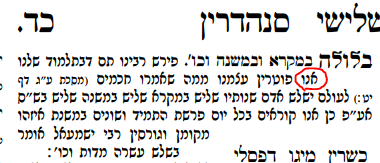With regard to your first question, tosfos (Kidushin 30a ד"ה לא) quote the shita of Rabeinu Tam who explains that the Talmud Bavli is a mixture of mikra, mishnah, and gemara. Therefore, the requirement to learn all 3 every day is fulfilled by learning Talmud Bavli (he bases this on the gemara which says that the bavli is a mixture playing on the word bavli). It is clear from his view that the chiyuv is not to split up learning into equal 3rds. (See the Rambam Talmud Torah 1:11 who disagrees, and the Ron for a bigger discussion.) So long as one learns all 3 one fulfilles the chiyuv. The Rama (Yoreh De'ah 246:4) paskons like Rabeinu Tam and hence by learning Talmud Bavli one fulfills this chiyuv.
Either way, I do think that the halacha represents a broader educational point, which is reflected by many other maamarei chazal as well, that one should have a well rounded Torah education. It is critical to know all the basic areas of Torah. If I may venture to guess as to why that is, it seems at first glance to be for two reasons:
- Each area of Torah has critical elements which the other areas don't have, both in the realm of developing into a yerei hashem and in the realm of achieving yediyas hakadosh baruch hu.
- All of Torah is one. Therefore, if one has an incomplete understanding of tanach, they will not understand gemara properly and vice versa. In light of what was quoted before in the name of Rav Shternbach, I guess I am arguing that not only is it dangerous to learn tanach without knowing gemara. It is dangerous to learn gemara without learning tanach and mishnah.
Your second question has bothered me for quite some time. No one would disagree that is immensely important to master tanach b'iyun. Certainly knowing tanach is part of the chiyuv to know kol hatorah kulah (see the shulchan aruch harav, Hilchos Talmud Torah chapter 1, kuntres acharon note 1) and hence learning all of tanach is an absolute chiyuv. It is also self evident that the words which Hashem found necessary to communicate to mankind for all eternity is of utmost importance and to neglect learning tanach would be a massive chilul hashem. So I repeat, everyone agrees that tanach must be learned, all of it, well. What gadol doesn't know tanach cold? Certainly for chumash, the chiyuv shnayim mikra indicates the absolute necessity to learn chumash weekly and know it well.
The question is really - why don't yeshivos incorporate that into their curriculum? Even the ones that do, the time dedicated to tanach is a tiny fraction. I know one common response is that tanach is generally easier to master and therefore doesn't require as much time and would be a waste of the resources available in a yeshiva. In other words, to learn a proper derech halimud in gemara and to develop the skills necessary to master gemara takes a lot more time, study, and direction from talmidei chachamim. Therefore, the yeshiva dedicates nearly all of its time to the study of gemara for this reason. However, the expectation is still that at some point in one's life they master tanach on their own. It is really a matter of different curricula for different stages of life and different periods of opportunity. Certainly in the times of Chazal children mastered tanach before they learned gemara (see pirkei avos 5:21).
I would just mention two concerns with this approach:
It isn't only important to have a well rounded torah education in the long run, but also as one develops their knowledge of Torah it is important to have a balance. The balance is essential for growing properly as an oveid hashem (there are many broad lessons and perspectives which one only learns from tanach, which are essentiall to learn as one grows from learning gemara as well).
Since tanach has been so neglected by yeshivos, there are very few writings of later achronim on tanach which are written as a rigorous approach to learning pshat in tanach (maybe the one exception amongst the right wing yeshivos is the Emes Lyaakov). Therefore, even the simpler skill set for learning tanach isn't being effectively developed by people who attempt to learn tanach on their own. Meaning, since tanach isn't being taught in yeshivas, the guidance of talmidei chachamim which is necessary for any area of talmud torah has been neglected. Maybe if tanach were learned in yeshivos, HaRav Shternbach's concerns about being corrupted by tanach chalila vchas (it hurts me to even say that one could be corrupted by the wellspring of yiras shamayim) wouldn't be such a concern since talmidei chachamim would be giving their talmidim hadracha in how to learn an approach tanach in a frum way, to understand it properly and for what it is.

